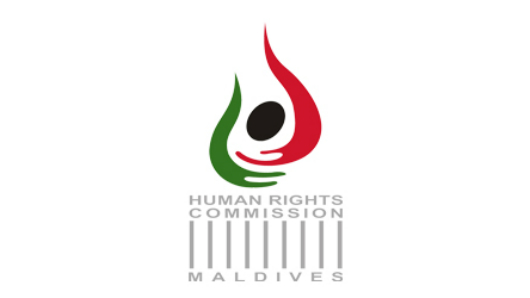The Human Rights Commission of the Maldives (HRCM) has slammed the judiciary for compromising its independence, describing the Supreme Court’s suo moto proceedings over a submission to the UN Human Rights Council as the biggest challenge the watchdog has faced in its 11-year history.
In its 2014 annual report, the independent commission noted the Supreme Court and the Juvenile Court accused the HRCM of making false allegations in the Universal Periodic Review and a confidential report into a 15-year-old rape victim’s flogging sentence.
The Supreme Court and Juvenile Court’s charges affected the commission’s independence and ability to carry out its mandate, the report said.
The controversial suo moto regulations allow the Supreme Court to initiate proceedings, prosecute and pass judgment. The first case of its kind, in March 2014, saw the apex court sack the Elections Commission’s President and Vice President for contempt of court.
Jumhooree Party (JP) MP Ali Hussein said the judiciary’s “harassment of HRCM” was an indication of the “extraordinary levels of judicial activism in the country.”
“The judiciary is acting outside its boundaries, it is annulling laws, making laws, dismissing members of the independent commissions. The judiciary needs to be restrained immediately. But there is no way to hold them accountable.”
Judges must be educated and sensitised to human rights, fundamental norms and best practices in a democratic society, he continued.
However, lamenting President Abdulla Yameen’s decision to appoint disgraced Supreme Court Judge Ali Hameed to the judicial watchdog Judicial Services Commission (JSC), Ali said judicial reform was only possible through a long hard people’s struggle.
Hameed was implicated in a series of sex tapes involving foreign women, but the police have closed the investigation citing non-cooperation from the judge, according to media reports. The JSC subsequently refused to take action against Hameed.
Meanwhile, parliamentary group leader of the ruling Progressive Party of the Maldives (PPM), Ahmed Nihan, said the People’s Majlis must play a key role in mediating the conflict between the HRCM and the judiciary to ensure the commission’s independence.
The majority leader described the dispute as “a teething trouble in a nascent democracy,” and said the HRCM must continue to exist as “a pillar of multi-party democracy.”
The opposition Maldivian Democratic Party (MDP) agreed the responsibility for ensuring HRCM’s independence rested with parliament, but said the PPM-dominated Majlis had no regard for the independence of the state’s watchdog bodies.
MDP MP Eva Abdulla also accused ruling party MPs of harassing human rights commissioners through the parliament.
The five members of the HRCM were summoned separately to the Majlis last week and questioned in a closed-door meeting regarding the commission’s statement condemning the Criminal Court’s 13-year sentence on former President Mohamed Nasheed.
The HRCM on March 14 expressed concern over apparent lack of due process in the opposition leader’s trial, and said the Criminal Court had failed to respond to a request to monitor court proceedings.
Eva also noted increasing threats against the HRCM, most recently that of a group of angry men on February 24 entered the commission’s officers and threatened to harm the five commissioners following a statement condemning the police’s mistreatment of Nasheed ahead of a hearing on February 23.
HRCM Vice President Ahmed Tholal meanwhile received threatening calls and messages after the police claimed he had called them “baagee” or traitor on February 22. The police have since withdrawn the claim.
The Supreme Court’s suo moto case is still pending “like a sword hanging over the HRCM,” Eva said.
The MP for Galholhu North also concurred with JP’s Ali Hussein, stating the judiciary should be held answerable through the JSC.
“We must end this judicial dictatorship. Within the People’s Majlis we must ensure the JSC fulfills its mandate. And above all, appoint qualified judges to the judiciary,” she said.
The HRCM in its report said the judiciary faced the most number of challenges in protecting human rights in 2014. The commission also expressed concern over the sudden dismissal of Chief Justice Ahmed Faiz and Justice Muthasim Adnan in December.
